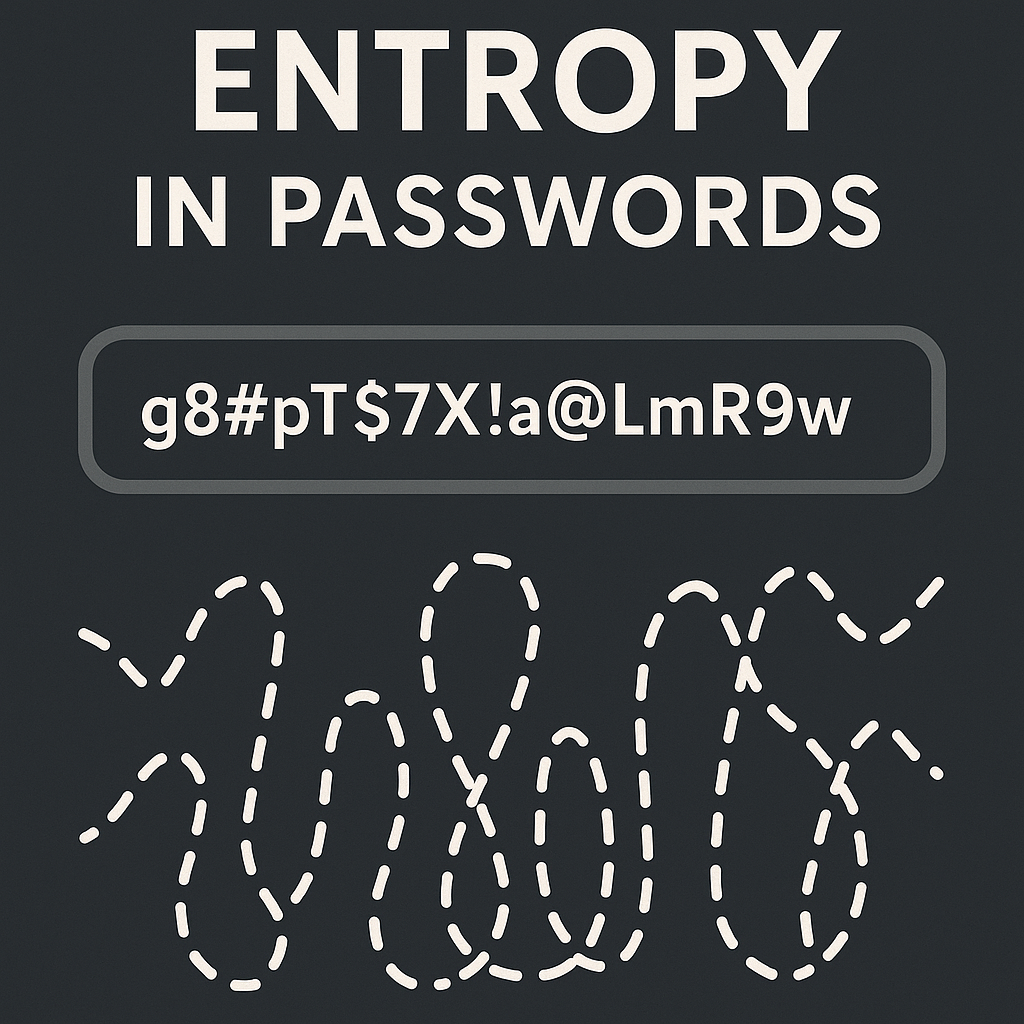Entropy and the Art of Bitcoin Passwords: How Random Is Secure Enough?
In the world of cryptocurrency, the strength of a password isn’t just a matter of personal privacy, it can mean the difference between holding millions in digital assets or losing them forever. At the heart of Bitcoin password security lies a powerful but misunderstood concept: entropy.
Entropy, in cryptography, refers to the measure of unpredictability or randomness in a password or cryptographic key. The higher the entropy, the more difficult it becomes to guess or brute-force that password. In this blog post, we explore what entropy is, how it applies to Bitcoin wallets, and what makes a password secure enough in a world where password recovery is a high-stakes business.
What Is Entropy?
In layman’s terms, entropy is randomness but in cryptographic terms, it's measured in bits. Each bit of entropy doubles the number of possible combinations. For instance:
A password with 40 bits of entropy has about 1 trillion possible combinations.
A password with 128 bits of entropy has 3.4 x 10³⁸ combinations, an astronomical number.
Entropy doesn’t increase linearly, it grows exponentially. This is what makes high-entropy passwords virtually uncrackable without very specific hints or structures to narrow the search.
Why Entropy Matters for Bitcoin
Bitcoin wallets rely heavily on cryptographic mechanisms, and their security depends on entropy at multiple layers:
1. Private Keys
A private key in Bitcoin is a 256-bit number, that’s 256 bits of entropy. If randomly generated, it's computationally impossible to guess by brute force with today’s (and even tomorrow’s) technology.
2. Mnemonic Phrases (BIP39)
The 12- or 24-word mnemonic phrases you use to back up your Bitcoin wallet are generated from high-entropy random data. A standard 12-word phrase has 128 bits of entropy, while a 24-word phrase has 256 bits matching the private key.
3. User-Defined Passwords
Many users add a passphrase (BIP39 extension) or encrypt wallets with user-created passwords. This is where entropy drops, often dramatically, because humans are bad at creating truly random passwords.
Human Error and Entropy Collapse
Even if the wallet is protected by a cryptographic seed with 256-bit entropy, the entire system becomes vulnerable if the user adds a weak password.
For example:
"Bitcoin2022" has around 20-30 bits of entropy — trivial to crack.
"MyWallet!April$2023" might get to 40-50 bits.
A truly random password like "g8#pT$7X!a@LmR9w" exceeds 90 bits, assuming proper character sets and length.
Unfortunately, most people do not use password managers or random generators, which leads to entropy collapse. And when that happens, password recovery becomes both possible and necessary.
How We Estimate Entropy During Recovery
When someone contacts us with a lost Bitcoin wallet password, our first task is estimating the entropy of the possible password(s). We ask structured questions:
How long was the password?
Did you use names, dates, or common phrases?
Any substitutions (like “3” for “e”)?
Any known patterns or themes?
The goal is to shrink the search space reducing the entropy from, say, 70 bits to 40. While 40 bits still allows for 1 trillion combinations, this is feasible with GPU-assisted password cracking over time.
Here's an example:
A user thinks the password is based on their daughter's name and birthday.
That gives us a structure: [Name][YYYY]
If we have a list of common names and 100 possible dates, that’s perhaps 10,000 combinations (13.3 bits of entropy).
Now, we can run targeted permutations — far more efficient than trying every 8-character password.
In contrast, if the user used a true 64-character random password and lost all hints we’re sorry, but that’s gone. Recovery would require breaking 256-bit encryption, which is not realistically possible.
Entropy and Mnemonic Phrases
BIP39 mnemonic phrases are not passwords, but people often confuse them. Each word comes from a fixed 2048-word list, and every 12-word phrase represents 128 bits of entropy. This means:
There are 2¹²⁸ (≈ 3.4×10³⁸) valid combinations.
Even with cloud computing and GPU farms, brute-forcing a 12-word phrase without any clues is infeasible.
That said, people often make mnemonic phrases less secure by:
Writing them in predictable places (e.g., notes app).
Using only the first few words from a phrase (e.g., “I remember it started with ‘abandon ability about’...”).
Re-using phrases from online tutorials or guides (yes, people really do this).
We’ve successfully recovered partial mnemonic phrases by leveraging word patterns, typo analysis, and user psychology but again, success only comes when entropy is significantly reduced by human error.
Entropy past 60 bits becomes essentially uncrackable without narrowing the field using user-supplied clues.
Best Practices: How to Protect Your Wallet (and Your Future Recovery)
Here’s our professional advice:
Use high-entropy passwords generated by a password manager.
Avoid reuse, don't base your wallet password on reused or memorable personal patterns.
Store mnemonic phrases offline, ideally on paper in multiple secure places.
If using a passphrase on top of your seed, document it somewhere secure, this cannot be guessed.
Don’t get clever. Originality leads to unpredictability, and unpredictability leads to unrecoverability.
Final Thoughts: The Edge Between Security and Accessibility
Entropy is a double-edged sword. The very randomness that protects your Bitcoin also makes recovery impossible without a well-defined strategy. At BringBackMyCrypto.com, we specialize in navigating that razor’s edge, leveraging just enough user information to tip the odds back in favour of recovery.
If you’ve lost access to your Bitcoin wallet and think the password had a predictable structure there’s a good chance we can help. But if it was truly random with no recovery plan? Even we have to bow to entropy.

